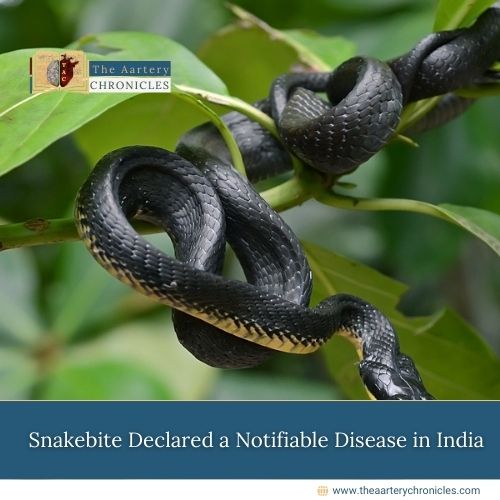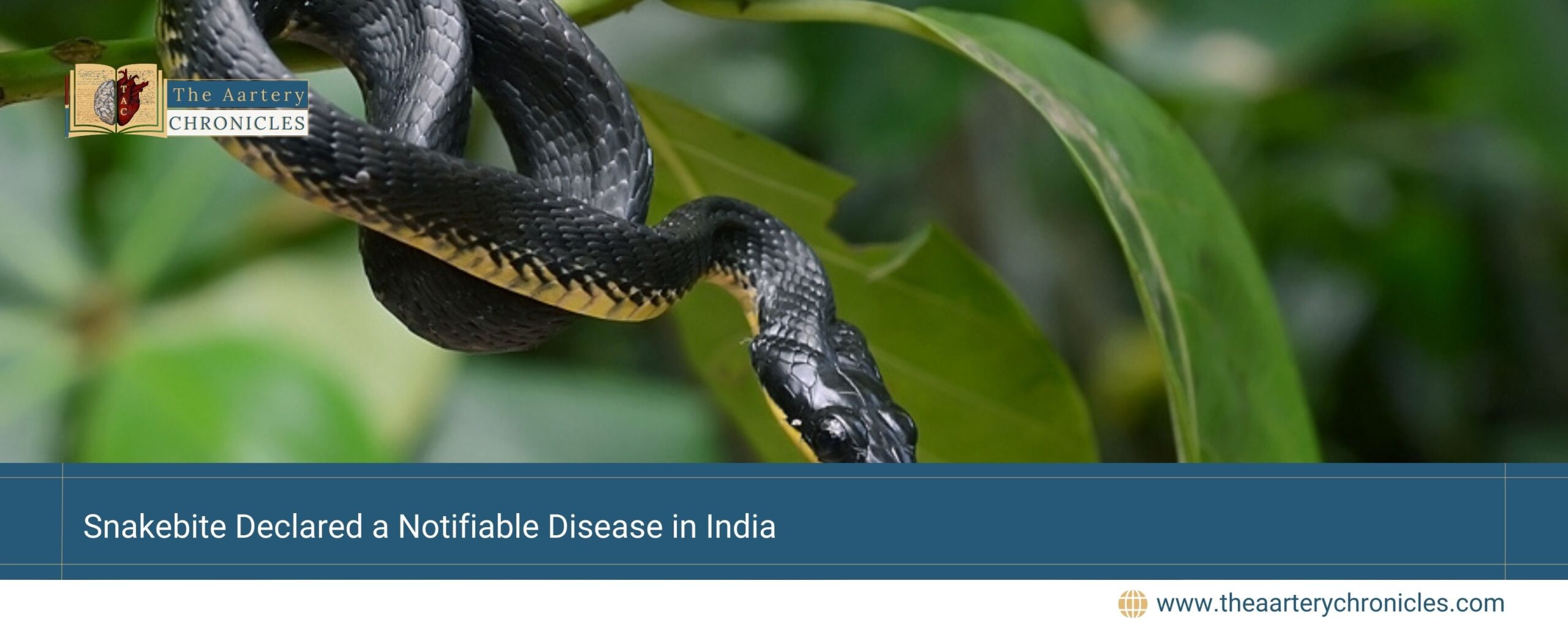

Snakebite Declared a Notifiable Disease in India
Introduction
The Ministry of Health and Family Welfare (MoHFW) has officially designated snakebite cases and deaths as a notifiable disease across India. This significant move mandates all healthcare providers—public, private, and medical colleges—to report every suspected or confirmed snakebite case to ensure accurate tracking and effective response.
Why Snakebites Are a Public Health Concern
Snakebites pose a serious health risk, especially in rural and agricultural areas. Farmers, tribal communities, and individuals living in snake-prone regions are among the most vulnerable. The effects of snakebites can range from mild symptoms to severe outcomes, including permanent disability and even death.
India reports a high number of snakebite incidents annually, making it a critical public health issue. By declaring it a notifiable disease, the government aims to understand the problem better, assess intervention strategies, and ultimately save lives.
The Plan to Reduce Snakebite Deaths
In March 2024, the MoHFW launched the National Action Plan for Prevention and Control of Snakebite Envenoming (NAPSE). This comprehensive plan targets a 50% reduction in snakebite-related deaths by 2030.
Countries with the Highest Burden
The study found that countries like India, China, Indonesia, and those in sub-Saharan Africa bear the brunt of these health impacts. This disparity underscores the geographical and socioeconomic inequalities in the consequences of landscape fires.
Key Objectives
- Robust Reporting System: All health facilities must record and report snakebite cases using standardized formats. This centralized data will help evaluate and improve prevention strategies.
- Focus on High-Risk Groups: Farmers, tribal populations, and other at-risk communities will be prioritized for education and healthcare interventions.
- Improved Surveillance: Tracking snakebite incidents and deaths will provide valuable insights for policymakers and healthcare providers.
How Will This Initiative Help?
By mandating the notification of snakebite cases, the government aims to create a reliable database of incidents. This data will:
- Enhance awareness about the prevalence and impact of snakebites.
- Inform the development of targeted campaigns for prevention.
- Monitor the effectiveness of interventions and anti-venom treatments.
The MoHFW is working closely with state and union territory health departments to enforce this directive under relevant public health laws.
What Does This Mean for Healthcare Providers?
Healthcare facilities, whether government-run or private, now have a legal obligation to report all snakebite cases. This includes:
- Suspected and probable cases.
- Confirmed snakebite-related deaths.
Failure to report such cases may result in legal implications under public health regulations.
Step Toward Safer Communities
Snakebites have long been a neglected issue in India’s public health landscape. This new mandate is a progressive step toward addressing the problem with the urgency it deserves. Through better reporting, focused interventions, and a clear action plan, India hopes to save thousands of lives and reduce the suffering caused by snakebite envenoming.
Looking Ahead
The success of this initiative depends on collaboration between healthcare providers, government agencies, and local communities. With sustained effort and commitment, the goal of halving snakebite-related deaths by 2030 is achievable.
By taking these steps, India is not just addressing a pressing health issue but also empowering vulnerable populations to lead safer, healthier lives.
Source: Inputs from various media Sources









